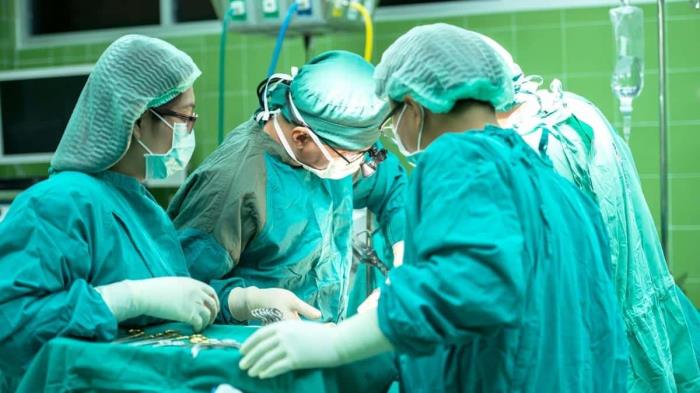Cystic fibrosis (CF) is a genetic disorder that primarily affects the lungs, causing thick, sticky mucus to accumulate, leading to chronic infections, inflammation, and respiratory decline. Over time, the damage caused by CF can result in severe lung function impairment, making it difficult for patients to breathe and significantly impacting their quality of life.
Medical disclaimer: This content is for general awareness and does not replace a doctor’s consultation. For diagnosis or treatment decisions, consult a qualified specialist.
When Is Lung Transplant Considered for Cystic Fibrosis Patients?
Lung transplant is considered for cystic fibrosis patients when their lung function declines to a critical level, typically indicated by severe respiratory failure, frequent hospitalizations, or life-threatening complications such as persistent infections. Transplantation is pursued as a last resort when other treatments fail to manage the disease effectively.
Eligibility Criteria for Lung Transplant in Cystic Fibrosis
Eligibility for lung transplant in CF patients includes having severe lung disease, meeting age and general health requirements, and demonstrating the ability to adhere to post-transplant care. Patients must also undergo a thorough evaluation to rule out contraindications such as advanced organ dysfunction, active infections, or psychosocial barriers to recovery.

The Benefits of Lung Transplantation in Managing Advanced CF
Lung transplantation can provide significant benefits for patients with advanced cystic fibrosis, including improved respiratory function, enhanced exercise capacity, and relief from chronic infections. While it does not cure CF, replacing the diseased lungs with healthy donor lungs can significantly extend life expectancy and improve overall well-being.
Pre-Transplant Evaluation for Cystic Fibrosis Patients
The pre-transplant evaluation for CF patients includes a comprehensive assessment of lung function, imaging studies, blood tests, and cardiac evaluations. Psychological readiness and support systems are also reviewed to ensure patients can manage the demands of post-operative care and rehabilitation. This evaluation is critical for determining transplant suitability and minimizing risks.
How Lung Transplant Improves Quality of Life for CF Patients
A lung transplant can dramatically improve the quality of life for cystic fibrosis patients by alleviating the symptoms of severe respiratory failure and reducing the frequency of infections. Post-transplant, patients often experience increased energy, the ability to participate in daily activities, and a greater sense of independence.
The Role of Genetic Factors in Transplant Outcomes for CF
Genetic factors can influence transplant outcomes for cystic fibrosis patients, as certain CF mutations may affect the severity of disease progression and the response to treatment. Understanding these genetic implications helps tailor care and post-transplant management to maximize the success and longevity of the transplanted lungs.
Addressing Infections Before and After Transplant in CF Patients
Managing infections is critical for cystic fibrosis (CF) patients undergoing lung transplantation. Pre-transplant care involves aggressive antibiotic and antifungal treatments to control chronic infections in the lungs. Post-transplant, patients are monitored closely to prevent opportunistic infections, which are more likely due to immunosuppressive therapy. Regular bronchoscopy and microbial surveillance play a vital role in detecting and addressing infections promptly.
Long-Term Survival Rates After Lung Transplant for CF
Survival rates for CF patients after lung transplants have improved significantly due to advances in surgical techniques and post-transplant care. On average, the median survival is 8 to 10 years, with many patients living beyond 15 years. Factors influencing outcomes include infection control, rejection prevention, and adherence to medical regimens.
Immunosuppressive Therapy and Its Role in Post-Transplant Care
Immunosuppressive therapy is essential to prevent organ rejection in CF lung transplant recipients. These medications suppress the immune system, reducing the risk of the body attacking the new lungs. However, they require careful management to balance rejection prevention with minimizing infection risks. Regular blood tests and dose adjustments are crucial for optimal outcomes.
Managing CF-Related Complications After Lung Transplant
While a lung transplant addresses respiratory issues in CF patients, other complications such as pancreatic insufficiency, diabetes, and gastrointestinal problems may persist. Post-transplant care includes multidisciplinary management to address these ongoing challenges and ensure comprehensive health maintenance.
Importance of Physical Therapy in CF Lung Transplant Recovery
Physical therapy is vital for CF patients post-transplant to regain strength and enhance lung function. Breathing exercises, cardiovascular training, and mobility-focused activities help improve endurance and prevent complications like deconditioning and muscle atrophy. Consistent participation in rehabilitation programs ensures better recovery outcomes.
The Psychological Impact of Lung Transplant on CF Patients
The psychological journey of CF patients undergoing lung transplant can be complex, involving both relief and anxiety. While improved breathing provides a sense of freedom, concerns about rejection, infections, and life-long care may lead to emotional stress. Psychological support, including counseling and peer support groups, is essential for emotional well-being.
Monitoring for Rejection in CF Lung Transplant Recipients
Rejection is a significant risk after lung transplantation, and early detection is key to management. Regular monitoring includes lung function tests, imaging studies, and biopsies to detect signs of acute or chronic rejection. Prompt intervention with adjusted immunosuppressive therapy can mitigate rejection-related complications.
The Role of Nutrition in Pre- and Post-Transplant Care
Nutrition plays a crucial role in the transplant journey for CF patients. Pre-transplant, a high-calorie, nutrient-dense diet supports overall strength and immune health. Post-transplant, balanced nutrition aids recovery, wound healing, and the management of immunosuppressive side effects like weight gain or diabetes.
How Lung Transplant Affects Other Systems in Cystic Fibrosis
A lung transplant primarily resolves respiratory issues in CF patients, but it also impacts other bodily systems. For instance, improved oxygen levels can enhance cardiac function, but immunosuppressive therapy may exacerbate gastrointestinal or endocrine problems. Comprehensive care plans address these interrelated effects.

Advances in Transplant Techniques for CF Patients
Recent advancements in lung transplant techniques for CF patients include the use of ex-vivo lung perfusion (EVLP) to assess and repair donor lungs before transplantation. Additionally, innovations in surgical precision and post-operative care protocols have enhanced survival rates and reduced complications.
Common Challenges in Lung Transplantation for Cystic Fibrosis
Challenges in CF lung transplantation include managing chronic infections, mitigating the risk of rejection, and addressing complications from immunosuppressive therapy. These issues require a coordinated approach involving pulmonologists, transplant surgeons, and infectious disease specialists for successful outcomes.
Future Prospects: Gene Therapy and Lung Transplant for CF
Gene therapy holds promise as a complementary or alternative treatment to lung transplantation for CF patients. Advances in genetic editing techniques like CRISPR aim to correct the defective CFTR gene, potentially eliminating the need for transplantation in the future. Research in this field continues to evolve rapidly.
The Role of Pre-Transplant Tend Evaluation in Lung Transplant Success
Explore the role of pre-transplant tend evaluation in lung transplant success. This article highlights the critical evaluations and tests performed before lung transplant surgery, ensuring patients are adequately prepared and increasing the likelihood of a successful transplant.
Patient Stories: Life After Lung Transplant for Cystic Fibrosis
Patient stories highlight the transformative impact of lung transplants on individuals with CF. Many report a renewed ability to perform daily activities, travel, and enjoy life without constant breathlessness. These narratives underscore the importance of transplantation in improving quality of life despite ongoing medical challenges.
Best Lung Transplant in India
The Best Lung Transplant in India offers a vital treatment option for patients with end-stage lung diseases, combining advanced surgical expertise with comprehensive post-transplant care.
Best Lung Transplant Hospitals in India
The Best Lung Transplant Hospitals in India are equipped with cutting-edge technology and experienced transplant teams, ensuring seamless care and improved outcomes for patients.
Lung Transplant Cost in India
The Lung Transplant Cost in India is structured to provide affordability while maintaining high standards of medical care and long-term support for patients.
Best Lung Transplant Surgeons in India
The Best Lung Transplant Surgeons in India are highly skilled in handling complex transplant cases, offering precise surgical interventions and personalized patient care for successful recoveries.
FAQ Section
1. When should a cystic fibrosis patient consider a lung transplant?
CF patients should consider a lung transplant when lung function declines significantly, typically below 30% of the expected capacity, and when other treatments fail to manage respiratory symptoms effectively.
2. What are the survival rates for CF patients after a lung transplant?
The median survival rate for CF patients post-transplant is 8 to 10 years, with advancements in care improving long-term outcomes.
3. How does lung transplant improve life expectancy for CF patients?
A lung transplant replaces severely damaged lungs, improving oxygen exchange and alleviating respiratory distress, thereby significantly extending life expectancy.
4. Are CF patients at higher risk of complications after a transplant?
Yes, CF patients are at higher risk due to chronic infections and the need for immunosuppressive therapy, which increases vulnerability to infections and other complications.
5. What is involved in the evaluation process for CF lung transplant?
The evaluation process includes comprehensive assessments such as pulmonary function tests, imaging studies, infection screening, nutritional evaluations, and psychological assessments to determine transplant eligibility.